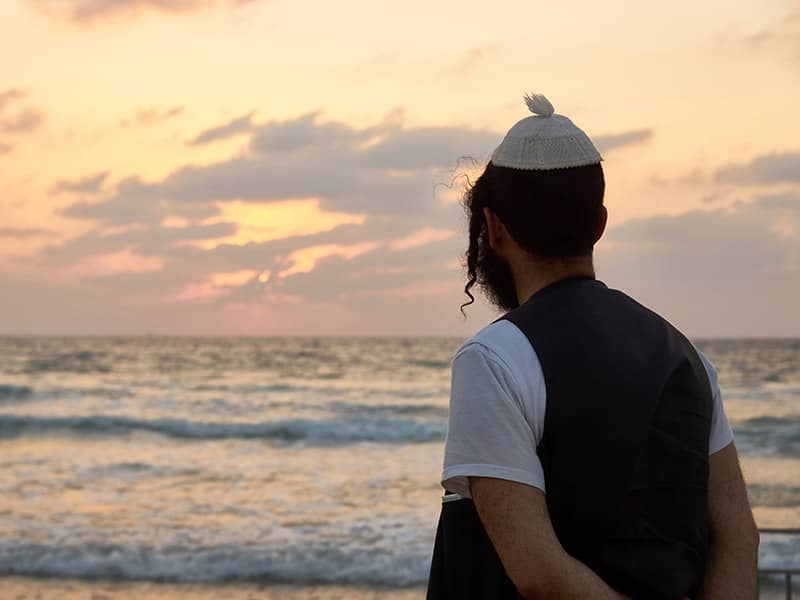I had always known that we’d face danger when we picked up and moved from New York to Israel in 1991. But we took that leap of faith and settled in a small farming village in the Galilee. The good news is that we’re right on the shore of the Mediterranean. The bad news is that we’re only 10 miles south of Lebanon. Yet my desire to live here remains clear-cut. I figure that if Jews had waited thousands of years to return to our homeland and I was alive when it had finally happened, well, then, I wanted to be a part of it.
When I first moved here, our six children were small and I naively assumed that by the time they were of army age, there would be peace in the Middle East. But they grew and so did the Arab-Israeli conflict and now, our sons serve in the Israeli Army. Nadav and Ari are non-combat soldiers, but Shlomie, a medic in the paratroopers, was sent into Lebanon.
Before Shlomie left for the war, my husband, Jonny, and I drove with our other children to see him. Our visit was wonderful but edgy. I hung onto every word; I tried to freeze each moment. After we said good-bye and our car was pulling away, I turned around to gaze at Shlomie, and I had the horrifying sense that I was seeing him for the very last time.
That was when I recalled the biblical story of Abraham (Genesis 22, 1-19): how God asked him to sacrifice his son, Isaac, as a test of faith. Abraham rose early in the morning and walked with his son up the mountain. A Jewish principle—perhaps an inner voice like that of Abraham’s—had guided me to Israel. If I could accept the deep spiritual blessing of living here, then I also had to accept the curse of putting my life and, most important, my children’s lives, on the line to exist in this Jewish country.
Suddenly, the story of Isaac’s possible sacrifice spoke to me in a new and profound way. I came to understand that, like Abraham, I needed to turn the four-letter word, fear, into the five-letter word, faith. I had to believe even though there was no reason to believe.
Two days after we saw Shlomie, he called to say, “Don’t worry, I’m okay, but I’ve been wounded by shrapnel in my thighs.” He and his fellow soldiers had been surrounded by enemy fire for 20 hours. One soldier, Michael Levin, a volunteer from Bucks County, Pennsylvania, who had been fighting next to him, was killed in the battle.
Yet I harbor no secret dreams of revenge against the people who hurt my son and killed his friend. Revenge is in God’s realm, and besides, the war only strengthened my personal mandate to work for peace between Israel and her neighbors. I’ve also realized that this war claimed not only the lives of Israeli soldiers but also of civilians.
Hezbollah terrorists launched more than 3,000 Katyusha rockets into Israel; in fact, 20 of them landed in my village. The Hezbollah leader, Sheikh Hassan Nasrallah, might have wanted to spread animosity among the Druze, Christian, Muslims, and Jews who live in the Galilee, but if anything, the rockets, which did not discriminate among religions, made us more united. Friends of all faiths called me after Shlomie was injured to see how he was. A Muslim friend, Samia, said that she wanted to visit Shlomie, yet she worried that he might be angry with her because of Hezbollah’s actions. But Shlomie said that he bore no ill will against Israeli Arabs or against her—after all, he’s known her since he was a little boy.

